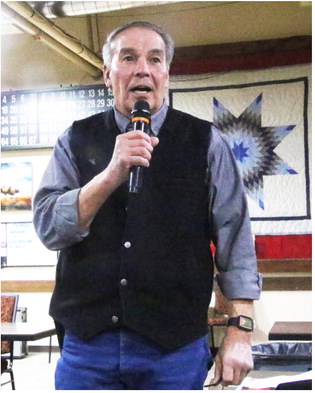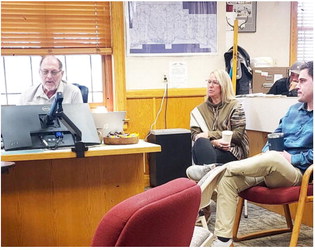What Does State’s New Obscenity Law Do?
Last week, Gov. Greg Gianforte signed a bill that was among the most talked about and contentious of the 2023 session: Montana’s “obscenity bill.” And while the proposal underwent substantial changes to address the concerns of teachers and librarians, there’s a persistent confusion about what the new law actually does.
House Bill 234 began as an effort by Rep. Bob Phalen, R-Lindsay, to crack down on the availability of obscene material to minors. The resulting debate featured members of the self-styled parental rights movement decrying the perceived inappropriate nature of books increasingly under fire nationally.
Opposing the bill, a string of public educators and librarians expressed concerns that HB 234 would undermine locally adopted policies related to graphic materials and potentially expose them to criminal charges. As of May 3, the Legislative Services Division had logged 866 public messages in favor of the bill and 1,629 against.
According to Montana School Boards Association executive director Lance Melton, part of the problem early on was the section of state obscenity law that HB 234 sought to revise.
That section deals specifically with newsstands and other businesses, barring them from displaying sexually explicit material in front of people under 18 and outlining criminal penalties for doing so. HB 234 initially sought to remove decades-old language stipulating that schools, libraries and museums are not considered commercial establishments.
“The bill started out with so much hot rhetoric around it that it was very difficult to try to work on anything that would solve or reconcile the sort of illogical way the law read to begin with,” Melton told Montana Free Press.
But by the time it reached the Senate floor in April, HB 234 was notably different and, in the words of early critics, largely benign. Sen. Dan Salomon, R-Ronan, carried an amendment clarifying that the public display of obscene material by commercial outlets is a separate and distinct offense from the general dissemination of obscenity to minors — a prohibition that applies to all Montanans, teachers and librarians included. Salomon’s amendment also granted cities, counties and schools the ability to adopt local obscenity policies of their own.
“When it comes down to it, we didn’t really change the law in the sense of, if people have an issue, what constitutes the process that they should go through,” Salomon, who chaired the Senate Education and Cultural Resources Committee, told MTFP this week. “Especially if the issue is with a public library or school, there is a policy in place within that school and within that public library that will deal with that, that explains how the process works. If somebody has an issue with a book and they want it to be reviewed, there is a process for it to be reviewed.”
State Superintendent Elsie Artnzen — an early supporter of HB 234 — told MTFP in an interview last week that Salomon’s amendments made the bill “more structurally sound,” and could fuel additional conversations about library and classroom content in the future.
While some initial critics remain troubled by the criticism leveled against educators and specific nationally targeted books during the debate, Melton and other public education advocates agree the final iteration of HB 234 that became law changes very little in a practical sense.



